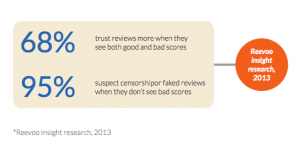— August 29, 2017

geralt / Pixabay
Companies with fewer than 100 employees annually lose a median of $ 155,000 because of fraud. It turns out that small businesses are more exposed to fraud than are their larger kin. Credit card abuse is a major weak spot, but by no means the only one.
Below are eight ways to protect your small business from fraud and cybercrime:
Check your employees:
Hiring honest people is essential if you want to reduce fraud, especially for staff members that handle cash or high-value inventory, have spending authority, or can access private financial/customer data. To stay compliant with legal privacy rules, consider using a private screening firm. Always verify resumes and do web searches on job candidates.
Protect your financial accounts:
Credit cards and bank accounts are frequent targets of fraud. When starting your own business, separate personal cards and accounts from business ones – this makes it a little harder for fraudsters to steal all your money. It also helps you fill out your tax returns accurately. Secure your credit cards, and don’t hand them over to employees unless you know them well. Go paperless and make payments via online bill pay. Get a secure mailbox for receiving and sending bills. Finally, review your online banking activity daily.
Protect your computers:
Invest in software that makes you more secure: anti-malware, anti-virus and spyware protection programs. Backup your data onto the cloud to guard against cyber blackmail, and automate your backups. Explore server virtualization, which eases disaster recovery. Encrypt all your data and use solid passwords that you keep secure.
Consider a banking-only computer:
By designating one computer exclusively for all your online banking, you avoid threats from email, social media and web-surfing, at least on this one computer. Although mobile banking seems nifty, best to avoid it if you are concerned about fraud.
Get serious about passwords:
Having a password policy makes a lot of sense, even though it takes some extra work. First, have all business passwords expire every 60 to 90 days. This lowers the risk of password theft. Set password standards, including length and use of special characters. Use unique passwords for different systems and accounts.
Train your staff:
Make your employees your allies in the fight against fraud. Invest in regular training sessions that teach your staff to detect and prevent security threats that can lead to fraud. It’s important to train employees to be alert to phishing fraud, in which phony emails look like they came from management.
Spending authority:
If you delegate check-writing or online payment authority, divide that authority between two, unrelated employees. This helps to prevent internal fraud in areas such as purchasing. Set spending limits that demand your approval for sufficiently large expenditures. It’s a good idea to stay away from paper checks altogether, since they are inherently less safe.
Fraud insurance:
Despite your best efforts, fraud and cybercrime can occur. You can protect yourself by purchasing an insurance policy covering losses from fraud and crime. Use credit cards with built-in insurance that provides $ 0 exposure to fraud.
One way IOU Financial customers enjoy increased security is through daily or weekly automatic repayment from your checking account. These payments are much smaller than would be a monthly repayment, which means any irregularities would be immediately apparent. Interbank transfers are more secure than are paper-based transactions, which is why you should move exclusively to online banking.
Running your business takes a lot of work. Recognize areas that you may have overlooked while managing your day-to-day operations with our 7 Secrets to Small Business Success!
Business & Finance Articles on Business 2 Community
(83)
Report Post






